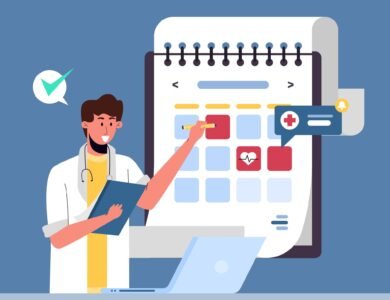A Guide to RCM Technology Tools for Healthcare

A Guide to RCM Technology Tools for Healthcare
Revenue Cycle Management (RCM) is essential for healthcare organizations aiming to keep their finances in check while ensuring a smooth patient experience. The rising complexity in healthcare billing and regulatory requirements has paved the way for technology solutions that help streamline the RCM process. This guide dives deep into RCM technology tools and how they can transform healthcare billing, improve efficiency, and boost overall revenue. Whether you’re part of a large hospital or a small clinic, understanding these tools can help you make informed decisions to benefit your practice.
Understanding Revenue Cycle Management in Healthcare
Revenue Cycle Management, commonly referred to as RCM, is the backbone of financial processes in healthcare. It involves every aspect of a patient’s financial journey, from appointment scheduling to final payment collection. However, traditional RCM systems often face challenges like coding errors, claim denials, and patient billing confusion. These issues not only reduce revenue but can also erode patient trust.
Integrating technology tools into the RCM process offers a solution to many of these challenges. With the right tools, healthcare organizations can automate routine tasks, reduce errors, and ultimately increase revenue.
Key RCM Technology Tools for Healthcare
Several types of RCM technology tools are essential in healthcare, each contributing unique benefits to the overall revenue cycle.
Electronic Health Record (EHR) Systems
EHR systems are a cornerstone of RCM. They store comprehensive patient information, from medical history to current medications, enabling seamless access to records across departments. These systems facilitate efficient billing by automatically updating patient data and sharing it with billing departments, reducing manual entry errors. EHRs also streamline the coding process by linking directly to diagnosis codes, ensuring accuracy in claims.
Practice Management Software
Practice Management Software (PMS) is designed to handle the administrative functions of healthcare practices, such as scheduling appointments, verifying patient insurance, and maintaining patient contact information. PMS also assists in billing by tracking patient appointments and ensuring that the right services are billed accordingly. The software improves RCM by organizing daily operations, reducing the likelihood of missed billing opportunities.
Medical Billing and Coding Software
Billing and coding errors are major reasons for claim denials. Medical Billing and Coding Software automates the coding process, helping healthcare providers assign accurate codes for procedures and diagnoses. By reducing human error, this software minimizes the chances of claim rejection and accelerates the reimbursement process. Many billing software options also offer real-time updates on claims, keeping providers informed about the status and helping resolve issues swiftly.
Claims Management Solutions
Claims management solutions streamline the claims submission process, ensuring faster approvals and fewer denials. These tools automate claims submissions, check for errors, and flag potential issues before submission, improving approval rates. Some claims management solutions even offer predictive analytics to identify trends in claim denials, helping providers take proactive steps to reduce future denials.
Payment Processing Platforms
Convenient payment options are crucial for patient satisfaction and timely revenue collection. Payment processing platforms integrated with RCM systems allow patients to pay bills online, by phone, or through mobile applications. By offering multiple payment channels, these platforms improve patient experience, reduce outstanding payments, and enhance cash flow.
Analytics and Reporting Tools
Analytics and reporting tools offer valuable insights into an organization’s RCM performance. With these tools, healthcare providers can monitor important metrics like claim denial rates, average payment turnaround time, and revenue trends. This data-driven approach allows for quick adjustments to optimize revenue flow and make informed financial decisions. Some tools even use artificial intelligence to predict revenue cycles and identify areas for improvement.
Benefits of Implementing RCM Technology Tools
Incorporating RCM technology tools into healthcare systems has numerous benefits. Let’s explore some of the key advantages.
Improved Accuracy and Reduced Errors
Automation reduces manual errors, especially in billing and coding, where mistakes can lead to costly denials. Automated systems also update patient data in real-time, ensuring records are always accurate and up-to-date.
Enhanced Efficiency and Time Savings
Technology automates repetitive tasks, allowing staff to focus on more complex responsibilities. From claims management to payment processing, RCM tools save time, reduce administrative workload, and create a faster revenue cycle.
Better Patient Satisfaction and Transparency
Clear and concise billing practices foster patient trust. By offering transparency in billing, RCM technology tools can improve patient satisfaction. Payment processing platforms provide easy payment options, creating a positive patient experience and ensuring timely payments.
Increased Revenue and Financial Health
Ultimately, RCM technology helps healthcare providers maximize revenue by reducing claim denials, streamlining billing, and improving payment collections. These tools directly impact an organization’s financial health, creating more opportunities for growth.
Choosing the Right RCM Technology for Your Practice
Not all RCM tools are created equal, so selecting the right solution is crucial for success.
Assessing Practice Needs and Budget
The size and budget of your practice play a role in selecting suitable tools. Large hospitals may benefit from comprehensive systems, while small practices can choose simpler, cost-effective options that still address their specific needs.
Ensuring Compliance and Data Security
When handling sensitive patient information, compliance with HIPAA and other regulations is essential. Choosing RCM tools with built-in security measures ensures patient data is protected, reducing the risk of data breaches.
Integration and Usability
RCM tools should integrate smoothly with existing systems, including EHR and PMS. A user-friendly interface and seamless data flow between systems are essential for efficient daily operations.
Future Trends in RCM Technology
RCM technology is continuously evolving. Here are some trends shaping the future of healthcare revenue cycle management.
Artificial Intelligence in RCM
AI technology is advancing quickly and can predict revenue cycles, identify high-risk claims, and reduce human involvement in routine tasks. AI-driven insights can provide healthcare providers with predictive data to make strategic financial decisions.
Cloud-Based RCM Solutions
Cloud-based RCM solutions allow for easy access to patient data from any location, improving collaboration and reducing the need for on-premises servers. This accessibility also makes it easier to scale RCM solutions as a practice grows.
Interoperability for Comprehensive RCM
Interoperability among healthcare systems is becoming a priority. Connecting different systems ensures a seamless data flow, giving healthcare providers a full view of patient information. This improved data access enhances decision-making across the revenue cycle.
Conclusion
Revenue Cycle Management technology tools are transforming healthcare, providing solutions for smoother, more accurate billing,





